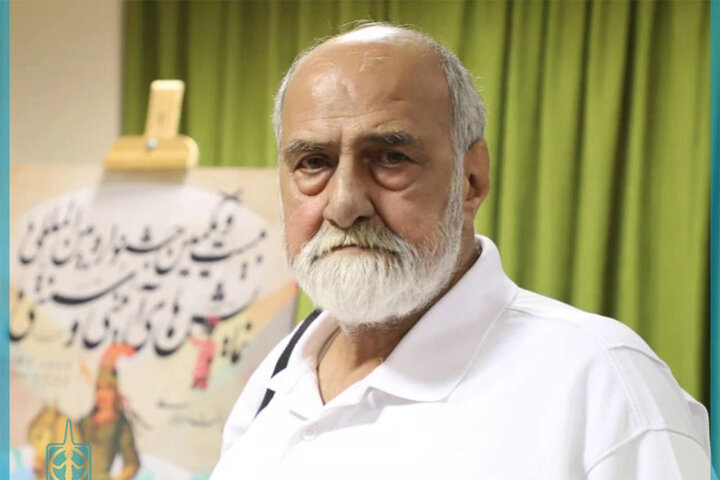Veteran tazieh performer Ali Akbar Qoddousian passes away

TEHRAN – Ali Akbar Qoddousian, a distinguished tazieh performer and the author of the acclaimed book “Unwritten Notes of Tazieh”, died on Saturday at the age of 72.
The veteran artist succumbed to respiratory issues and shortness of breath, Mehr reported.
Qoddousian was a prominent figure in the field of tazieh, known for his varied roles in performances that left a lasting impact. His book, “Unwritten Notes of Tazieh”, which compiles his experiences and narratives related to this revered art form, holds significant value among enthusiasts and researchers.
Prior to his passing, he was working on the second volume of this book, which remained unfinished.
In addition to his artistic endeavors, he served as a judge at tazieh festivals and mourning ceremonies, dedicating years to teaching and preserving the traditions of this ancient art. His efforts greatly contributed to passing on the art to new generations, with many young artists benefiting from his expertise.
The Iranian passion play tazieh was registered on the UNESCO List of the Intangible Cultural Heritage of Humanity in November 2010.
Tazieh represents religious events, historical and mythical stories and folk tales. Each performance has the four components of poetry, music, song and motion.
However, stories about the uprising of Imam Hussein (AS) and his companions against the oppressive Umayyad dynasty in 680 CE are more highly regarded by tazieh troupes and audiences.
Performers are always male, and female roles are played by men, most of whom are amateurs who gain their living through other means but perform for spiritual rewards.
It is a kind of drama that depicts the event of Ashura and is performed in Mahur, Chargah, and Shur Baghdad radifs of Iranian music.
It is based on the Ashura culture and the brave war and martyrdom of Imam Hussein (AS). It is a religious play dated back to 9th-century dynamites and Buyids.
However, Tazieh performance began during the Safavid era (1501-1736) and flourished during the Qajar era.
SAB/
Leave a Comment